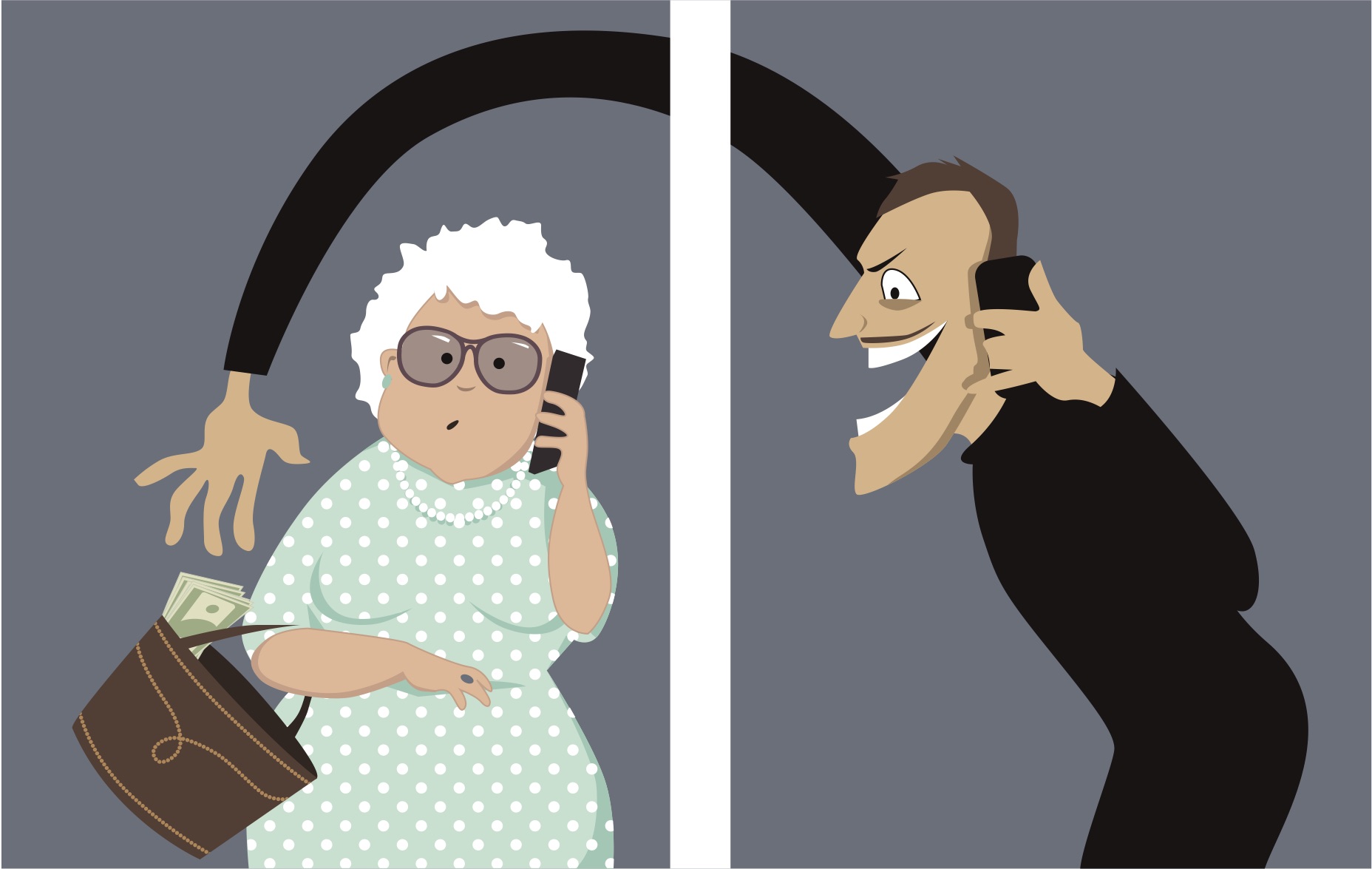Replacing an existing insurance policy is sometimes a very smart move, but it can also be an absolutely terrible one. It all depends on the facts of the situation. Sadly, it’s common for financial predators to sell elderly people new life insurance policies or “upgrades” that are not just unnecessary but can actually harm the insured person. These “new and improved” policies often have hidden risks—a lot of lawsuits can attest to that (see this excellent Wall Street Journal article). Read on for our top 4 things to watch out for, so you or a loved one don’t fall victim to a financial predator.
Let’s set the stage with Carla’s story as an illustration. Carla*, age 69, had received some advice from her financial advisor encouraging her to trade her existing life-long life insurance policy (aka permanent life insurance) for a new permanent life insurance policy. (*not her real name)
The pitch from Carla’s “advisor” suggested that her current policy was “very risky” because “it has no long-term care benefit,” and Carla was understandably moved by this argument—needing long-term care is a real risk and can be scary to think about. She was also skeptical because this “advisor” had sold her an annuity a few years ago, and she had not been happy with it.
Also suspicious was the fact her “advisor” had created a sense of urgency, needing to “know by Thursday” what her choice was going to be despite having reached out to Carla, not the other way around. Coincidentally, that Thursday was month-end. I’m going to guess this “deadline” was related to sales goals.
Carla’s son happened to be an AboveBoard client who reached out to us for advice on this, and we were happy to take a look.
It was quickly clear that sticking with her existing policy was a much better choice than trading it in for the new policy suggested by her “advisor.”
Her existing policy has a lot of great features:
- Bought in 1991, it includes guaranteed rates of return meaningfully higher than what is available in the market today (great!)
- Guaranteed death benefit (money that would go to her heirs) ensures a meaningful financial benefit for her loved ones, so long as the insurance company is still in business (an excellent bet, given the financial strength of her existing insurance company)
- Guaranteed cash value (money she could access while she’s alive for any reason, including if she needed long-term care)
-
Her policy was doing well enough that her premiums are now funded entirely by the policy itself, meaning she did not pay anything out-of-pocket each year. It was very reasonable to believe this would continue to be the case for her entire life, given policy performance and features.
By contrast, the new policy was very different—and all wrong for her. Here’s how.
#1: The policy has limited guarantees
It may seem surprising, but life insurance policies can be written such that there is no guaranteed payout of the death benefit.
In Carla’s case, this was slipped into the sales materials in one line: “death benefit at age 85: ENDS.” This means that after investing $140,000 in this policy, by the time Carla is 85, a mere 16 years later, this policy could be totally worthless, even if the insurance company itself was in business and doing just fine.
That is certainly not a base case; in fact, it’s a severe downside case, but the fact it can happen means it’s a critical risk that any client should understand clearly before purchase. Even in less severe scenarios for future stock and bond market performance, the cash value and death benefit could still be worth nothing.
Ironically, the particular product Carla was shown—unlike other VUL policies—did offer the option of paying extra for a guarantee. Her “advisor” just hadn’t told her about it, probably because the unguaranteed policy looked cheaper and better if you didn’t fully understand the fine print. AboveBoard has access to this same product, and I could see that adding a guarantee would have doubled the premiums. Carla’s “advisor” chose to remain silent on the risks and show her the less expensive-looking policy.
#2: The policy comes with risks you haven’t been informed about
When you see the word “variable” in an insurance policy, think “market risk—values can go up and down.”
Some policies, including Variable Universal Life (VUL) policies, are based on securities and fluctuate with market performance and come with market risk. If you think of a VUL policy as a portfolio of mutual funds “inside” an insurance policy, that’s a good preliminary understanding.
Carla had no idea that she was being shown a product where there would be underlying investments, which could fluctuate in value. This critical feature had not been explained to her. Given she was well into retirement with limited appetite for financial risk, this was not at all what she wanted. This was a totally inappropriate product for her.
#3: The policy was marketed with overly-optimistic assumptions
In order to rationally evaluate a policy, the performance outcomes (returns) need to be projected based on reasonable assumptions. Being overly-optimistic with assumptions is both misleading and irresponsible.
In Carla’s case, the “advisor’s” illustration assumed 8% gross returns and—appallingly—presented 7% gross returns as the alternate scenario. This misleadingly created the impression she would gain a lot more from this policy than was reasonable to expect.
First things first: neither of those is a realistic base case. And it’s ludicrous to act like a 1% reduction in gross return represents any kind of reasonable analysis of an alternate scenario for a VUL policy.
As mentioned above, VUL policies have underlying investment choices, so the returns will also depend on the investments chosen. The “advisor” had not even told Carla that choosing investments was even a part of the product!
#4: The policy costs you more than you’re already paying
Life insurance pricing goes up with each year of age, if everything else stays the same, since pricing is dependent on age and other risk factors (check out How Life Insurance Pricing Works for more detail). That doesn’t mean you shouldn’t shop around, but a pricier new policy needs to have enough benefits to make the increased cost worthwhile for you.
Between the time Carla had purchased her policy (in 1991, in her early 40s) and today, she had experienced something very common: she’d had some diagnoses that made her unable to achieve a really great health class rating on insurance.
She is still in very good health at age 69, an active grandmother of four, but many non-catastrophic diagnoses simply make 6th-best pricing a best-case scenario for her.
The result of this was that the cost of her insurance coverage would have gone way up compared with what she already had, nother reason this so-called “upgrade” was a terrible idea.
A joyful ending
I was able to talk with our client’s mom, Carla, and upon discussing her goals and financial situation and explaining the policy she was being shown, it was obvious to both of us that switching policies was a terrible idea. Unfortunately, such bad advice is all too common.
Here at AboveBoard we also handle life insurance coverage with long-term care benefits. But in Carla’s case her best option was the one she already had.
When I started our insurance business (AboveBoard Insurance Services) I did it because I believed the world did not need another pusher of inappropriate insurance products. What’s needed is sound insurance advice: facts-based, analytically rigorous, and totally ethical.
That’s what we do.
*************************
To get ethical, thoughtful insurance advice and online quotes if you're focused on replacing your income or care you provide for free, visit our life insurance calculator (spoiler alert: the right answer is usually term).
To get ethical, thoughtful insurance advice and quotes for more complex products (permanent life insurance, including estate planning and business uses) schedule a time to chat with Wallis or email us at concierge@aboveboardfinancial.com





